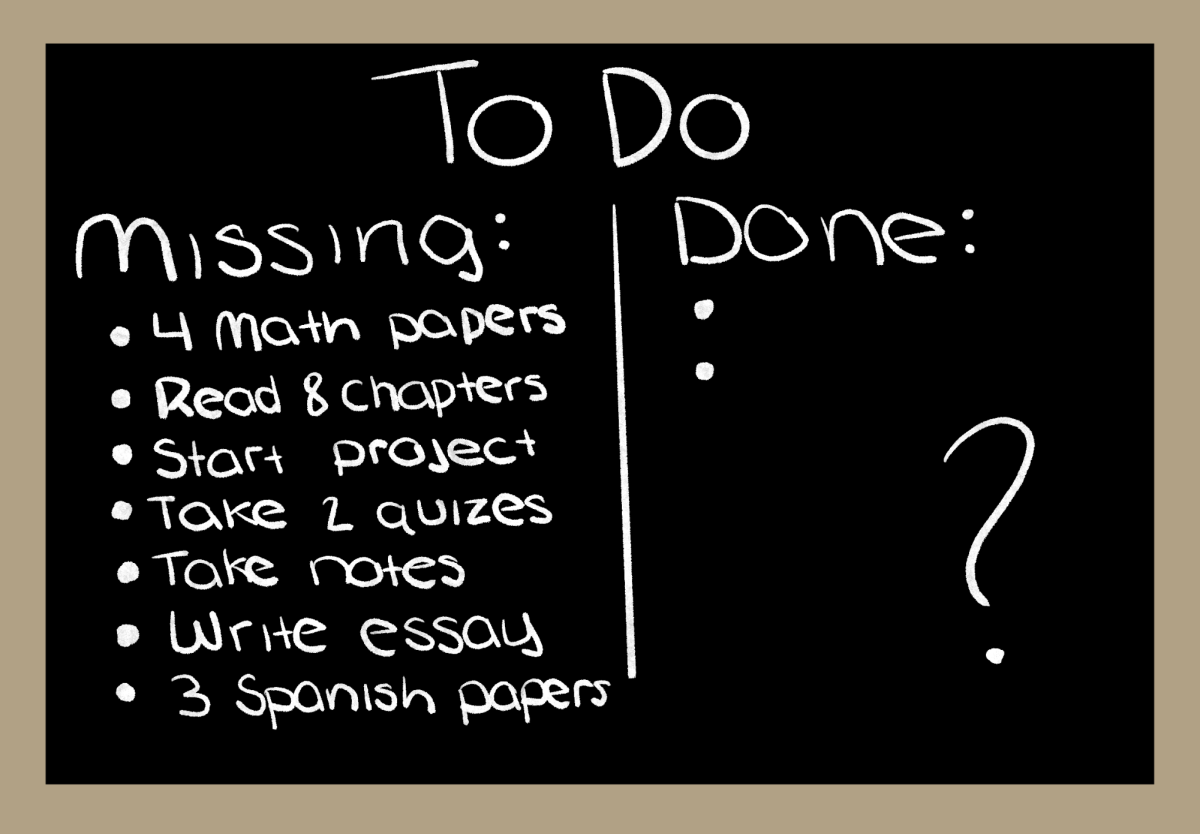Feeling allergic to homework? Struggling with grades and deadlines that you were once obsessed with? Find yourself skating by and doing the bare minimum? Congratulations, you might have senioritis! Students joke and poke fun at this downward spiral, but despite its humorous nature, it carries serious consequences. Senioritis is the colloquial term used to describe students, predominantly seniors, who have lost motivation or given up at the end of the year.
It is understandable that by the end of a four-year high school career, students are tired. Academic burnout and losing sight of an end goal make it easy for seniors, who are juggling a million things like clubs and scholarships, to slip up and fall behind. When students plan for the future, such as college or the workforce, it can be terrifying. As these students make peace with their decisions, they become more prepared and excited to embark on the next step of their journey that their current step, high school, feels less important.
Senioritis is a slippery slope. Once students start to fall behind, it can be extra grueling, near to impossible, to catch back up. Another drastic side effect can be the loss of opportunities. Many scholarships and acceptances are contingent on students maintaining certain scholastic standards. As these standards slip, the opportunities may go with them.
Students may also feel high levels of regret later on. No one looks back at high school and remembers how they slacked off, but everyone remembers what they accomplished. Senioritis impacts more people than just the affected senior. Tasks like group projects still exist, teachers still have a curriculum that they need to push through and colleges still have high expectations and expect effort.
Despite this, burnout is very real. Even when faced with the potential consequences, it can be very challenging for students to make the right decisions when everything feels so overwhelming. Momentum matters for the future of students. Once they enter a slump, it is hard to get out of it, but if students can finish the year strong, they will be able to carry that momentum into the next chapter of their lives.
Relaxation is good and is key to academic balance. Students should focus on mental health and taking breaks while avoiding quitting altogether. Breaks and relaxation are vastly different from total apathy, and should not be intertwined.
The key to avoiding this cycle, or breaking out of it, is to set goals. Both big and small goals and accomplishing them provides motivation and rewards students for their efforts. Seniors should make the most out of the last three months of their high school careers. This is their final chance to create memories, impress teachers and leave a legacy. Every senior should set at least one goal, whether that be maintaining grades, finishing a big project or even just showing up. To choose whether they coast or conquer. Make the choice to set goals and crush them.



